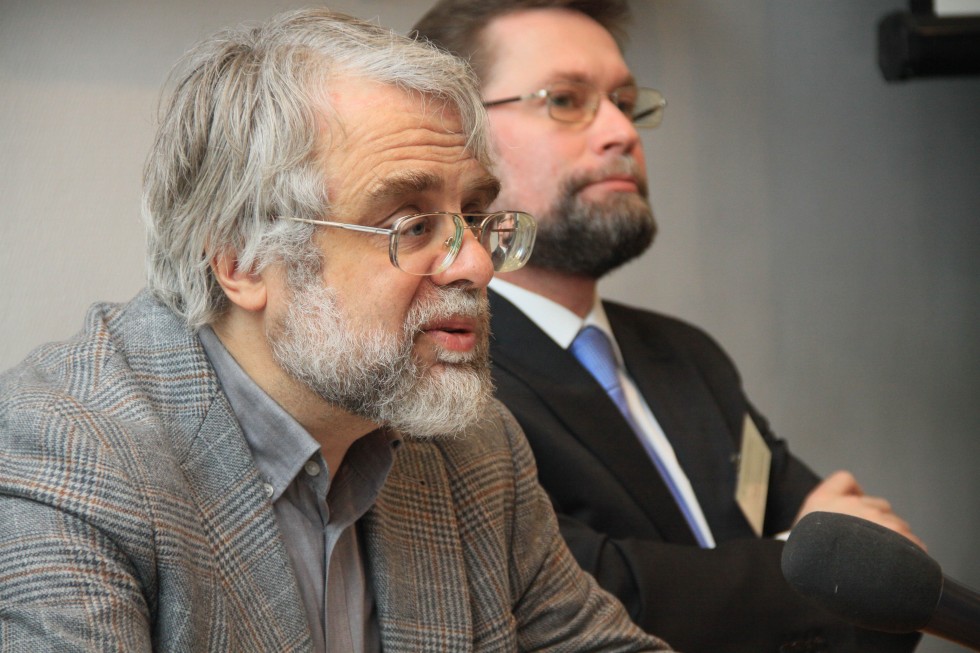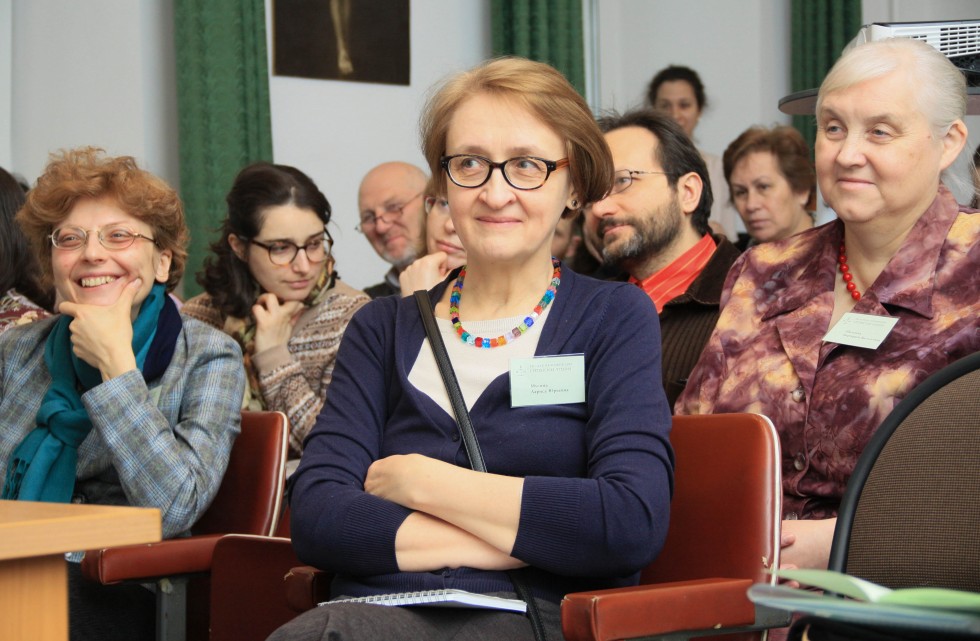21st Meeting of the Lord Readings held at SFI

“Scientific competence, fair but honest research, benevolence and readiness to listen to other people’s opinions is important for creative work at a university. The atmosphere we have acquired over these years at our Readings is precious for us. We are glad that representatives from other theological and secular institutions have been visiting us. Our visitors include not only students and would-be researchers but also prominent scientists”, said SFI Senior Vice-Rector Dmitry Gasak in a welcome speech for the participants of the 21st Meeting of the Lord Readings.
The Head of the Biblical Studies Department of St. Cyril and Methodius Theological Institute of Postgraduate Studies, Mikhail Seleznev gave a speech at the plenary meeting on the following topic: “Masoretic text, the translations of Seventy Interpreters and ‘the citations of fulfillment’ in Matthew: interpretation ratio (as in Mt 1.23 and Is 7.14).” He spoke about efforts to answer questions about why the Greek translation of Is 7.14 (“Therefore the Lord himself shall give you a sign; Behold, a virgin shall conceive, and bear a son, and shall call his name Immanuel”) used the word “parthenos” (“virgin”) instead of the Ancient Hebrew word “alma” (“young woman”).
Mikhail Seleznev raised the question of whether there actually were irreconcilable contradictions in the lexical meaning of these words, around which a Judeo-Christian polemic has developed throughout the centuries. Having considered the use of the word “parthenos” in classical Greek (for example, in the texts of Homer, Sophocles, Aristotle, Euripides), as well as in the Septuagint, he showed that it was not necessarily indicative of the physiological virginity. This includes reference to women who gave birth to children out of wedlock. Similarly, the Hebrew word “betula” (“virgin”), which in legal contexts (as opposed to “alma”) indicates virginity, in other cases, such as in Joel 1.8 (“Lament like a virgin girded with sackcloth for the husband of her youth!”) obviously does not have this meaning. In addition, he noted that in ancient cultures it was assumed that a single woman was a virgin. Therefore, the existence of separate words for these concepts would likely be excessive.
At the plenary session SFI graduates also presented their works. Sergey Chusov spoke about St. Irenaeus of Lyons and Cyprian of Carthage’s interpretations of the notions of “heresy” and “schism”. Xenia-Oksana Ivanova presented her paper on “Liturgical creativity during the Great Terror on the materials of archive and investigative cases”.
Papers were also delivered by representatives of Russian Orthodox University of St. John the Evangelist, Lucian Blaga University of Sibiu (Romania), Moscow State University, Russian State University for the Humanities, St. Petersburg State University, Saratov State University, The Russian Christian Academy for the Humanities, Belgorod Theological Seminary, Smolensk Theological Seminary and other church and secular schools.
A total of 38 papers on theology and philosophy, missiology and catechetics, Scriptures and liturgy, church history, religious studies were presented at the plenary session and five separate sessions. The reports will be published on the website.
Translated by Elizaveta Kostikova

